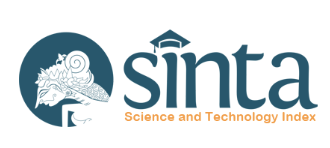MENINGKATKAN KEMAMPUANDAYA INGAT ANAK USIA DINI MELALUI MEDIA PEMBELAJARAN MIND MAPPING
DOI:
https://doi.org/10.22460/ceria.v2i3.p57-64Keywords:
mind mapping, memory skills.Abstract
Early childhood is a small human figure who has the uniqueness and distinctiveness of each. What is called early childhood is from the age of 0 to 6 years, where at that time is a very rapid development period or the golden age, and early childhood requires various stimuli that must be met in accordance with their needs, one of which is aspects of cognitive development, especially in memory ability. This memory ability can be developed through mind mapping learning media, where teachers innovate on learning media so that they can attract children's attention and make children more enthusiastic in learning. This study uses quantitative research methods with a quasi-experimental approach. This study aims to provide information to educators on how to improve children's memory skills using mind mapping learning media. Based on the results of the study it was found that the average gain of the experimental class was 25,72 while the average gain of the control class was 1,11 Â which means that the memory ability of the experimental class children after treatment was higher than that of the untreated control class. Therefore, this study is recommended to early childhood educators that mind mapping learning media can improve early childhood memory skills
Keywords : mind mapping, memory skills.                                                     Â
Early childhood is a small human figure who has the uniqueness and distinctiveness of each. What is called early childhood is from the age of 0 to 6 years, where at that time is a very rapid development period or the golden age, and early childhood requires various stimuli that must be met in accordance with their needs, one of which is aspects of cognitive development, especially in memory ability. This memory ability can be developed through mind mapping learning media, where teachers innovate on learning media so that they can attract children's attention and make children more enthusiastic in learning. This study uses quantitative research methods with a quasi-experimental approach. This study aims to provide information to educators on how to improve children's memory skills using mind mapping learning media. Based on the results of the study it was found that the average gain of the experimental class was 25,72 while the average gain of the control class was 1,11  which means that the memory ability of the experimental class children after treatment was higher than that of the untreated control class. Therefore, this study is recommended to early childhood educators that mind mapping learning media can improve early childhood memory skills.                          Â







